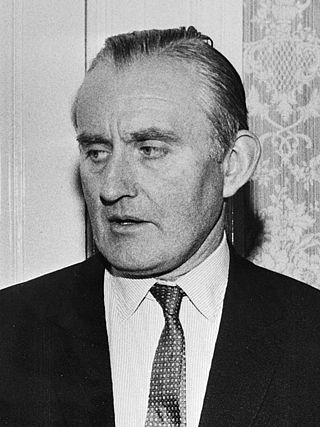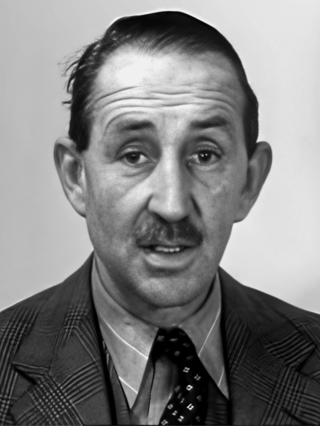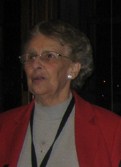
The Ulster Unionist Party (UUP) is a unionist political party in Northern Ireland. The party was founded as the Ulster Unionist Council in 1905, emerging from the Irish Unionist Alliance in Ulster. Under Edward Carson, it led unionist opposition to the Irish Home Rule movement. Following the partition of Ireland, it was the governing party of Northern Ireland between 1921 and 1972. It was supported by most unionist voters throughout the conflict known as the Troubles, during which time it was often referred to as the Official Unionist Party (OUP).

The prime minister of Northern Ireland was the head of the Government of Northern Ireland between 1921 and 1972. No such office was provided for in the Government of Ireland Act 1920; however, the Lord Lieutenant of Ireland, as with governors-general in other Westminster Systems such as in Canada, chose to appoint someone to head the executive even though no such post existed in statute law. The office-holder assumed the title prime minister to draw parallels with the prime minister of the United Kingdom. On the advice of the new prime minister, the lord lieutenant then created the Department of the Prime Minister. The office of Prime Minister of Northern Ireland was suspended in 1972 and then abolished in 1973, along with the contemporary government, when direct rule of Northern Ireland was transferred to London.

Terence Marne O'Neill, Baron O'Neill of the Maine, PC (NI), was the fourth prime minister of Northern Ireland and leader (1963–1969) of the Ulster Unionist Party (UUP). A moderate unionist, who sought to reconcile the sectarian divisions in Northern Ireland society, he was a member of the Parliament of Northern Ireland for the Bannside constituency from 1946 until his resignation in January 1970; his successor in the House of Commons of Northern Ireland was Ian Paisley, while control of the UUP also passed to more hard-line elements.
An unofficial order of precedence in Northern Ireland, according to Burke's Peerage, 106th Edition, this is not officially authorised by or published with authority from either Buckingham Palace or the College of Arms, or the Home Office, the Ministry of Justice or the Northern Ireland Office (NIO) of His Majesty's Government in the United Kingdom, or the Northern Ireland Assembly, or the Northern Ireland Executive.
Arthur Brian Deane Faulkner, Baron Faulkner of Downpatrick,, was the sixth and last Prime Minister of Northern Ireland, from March 1971 until his resignation in March 1972. He was also the chief executive of the short-lived Northern Ireland Executive during the first half of 1974.

James Dawson Chichester-Clark, Baron Moyola, PC, DL was the penultimate Prime Minister of Northern Ireland and eighth leader of the Ulster Unionist Party between 1969 and March 1971. He was Member of the Northern Ireland Parliament for South Londonderry for 12 years, beginning at the by-election to replace his grandmother, Dame Dehra Parker in 1960. He stopped being an MP when the Stormont Parliament was suspended and subsequently abolished with the introduction of Direct Rule by the British Government.

Basil Stanlake Brooke, 1st Viscount Brookeborough,, styled Sir Basil Brooke, 5th Baronet, between 1907 and 1952, and commonly referred to as LordBrookeborough, was an Ulster Unionist Party (UUP) politician who served as the third Prime Minister of Northern Ireland from May 1943, until March 1963.

The governor of Northern Ireland was the principal officer and representative in Northern Ireland of the British monarch. The office was established on 9 December 1922 and abolished on 18 July 1973.

The Senate of Northern Ireland was the upper house of the Parliament of Northern Ireland created by the Government of Ireland Act 1920. It was abolished with the passing of the Northern Ireland Constitution Act 1973.

The House of Commons of Northern Ireland was the lower house of the Parliament of Northern Ireland created under the Government of Ireland Act 1920. The upper house in the bicameral parliament was called the Senate. It was abolished with the passing of the Northern Ireland Constitution Act 1973.
In the United Kingdom, life peers are appointed members of the peerage whose titles cannot be inherited, in contrast to hereditary peers. Life peers are appointed by the monarch on the advice of the prime minister. With the exception of the Dukedom of Edinburgh awarded for life to Prince Edward in 2023, all life peerages conferred since 2009 have been created under the Life Peerages Act 1958 with the rank of baron and entitle their holders to sit and vote in the House of Lords, presuming they meet qualifications such as age and citizenship. The legitimate children of a life peer appointed under the Life Peerages Act 1958 are entitled to style themselves with the prefix "The Honourable", although they cannot inherit the peerage itself. Prior to 2009, life peers of baronial rank could also be so created under the Appellate Jurisdiction Act 1876 for senior judges.
John Warden Brooke, 2nd Viscount Brookeborough, PC (NI), was a Northern Irish politician. He was the son of the 1st Viscount Brookeborough, third Prime Minister of Northern Ireland.

Eileen Emily Paisley, Baroness Paisley of St George's, Baroness Bannside, is a Northern Irish Unionist politician, a vice-president of the Democratic Unionist Party, and the widow of Ian Paisley, Lord Bannside, former leader of the DUP. She became a life peer in 2006. She retired from the House of Lords on 30 October 2017.

The Executive Committee or the Executive Committee for Northern Ireland was the government of Northern Ireland created under the Government of Ireland Act 1920. Generally known as either the Cabinet or the Government, the executive committee existed from 1922 to 1972. It exercised executive authority formally vested in the British monarch in relation to devolved matters.
Robert William Brian McConnell, Baron McConnell was an Ulster Unionist MP in the Northern Ireland House of Commons.
Events during the year 1921 in Northern Ireland.
Phelim Robert Hugh O'Neill, 2nd Baron Rathcavan, PC (NI), was a politician in Northern Ireland and a hereditary peer in the British House of Lords.







